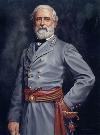Mike Dubost
Posts: 273
Joined: 8/24/2008
From: Sacramento, CA
Status: offline

|
quote:
ORIGINAL: warspite1
quote:
ORIGINAL: Mike Dubost
All of the recent posts about Munich made me go back and dig up Failure of a Mission by Sir Neville Henderson (the UK ambassador to Germany at the time). I bought the e book a few years ago. It makes very interesting reading. It is definitely not the standard perspective/received wisdom on the events. Yeah, as a memoir, it can't be called unbiased, but so what? You know what you're getting.
He was clearly a believer in Appeasement. I think it really was from an honest devotion to diplomacy and a fear of Communism, not a devotion to Fascism. In any event, the book does give you his views on the issues.
warspite1
I don't think that a charge of 'devotion to fascism' has ever been directed at anyone in the British or French government circles that were responsible for pursuing an appeasement policy. The path of appeasement was more about doing whatever was necessary to avoid another war - particularly so given the all too recent memories of the trenches and the ruinous war that led to the slaughter of so many young Frenchmen and those from the Commonwealth.
The charge has not been leveled against most of them. It may be different in UK history books, but in the US, Sir Neville has a less savory reputation.
In his book, he mentions certain journalists referring to him as "our Nazi ambassador", and some passages in his book reveal an ... unwholesome degree of sympathy for dictatorships in general and "the great social experiment which was being tried in Germany" (his words, not mine) in particular. For example, "The mistake which was too easily made abroad was to condemn everything that was Nazi just because its ideology was contrary to ours..." Or, "Nor are all dictatorships even if prolonged reprehensible."
One could make a case through selective quotation that he was too friendly to the Nazis. Of course, to do so would be to ignore other passages in which he denounces Himmler, the Gestapo, the indoctrination of German youth, and the concentration camps. In respect to that last, it is important to note that this is not post-war hindsight, the work being copyright 1940, and that he mentions a conversation on the camps with Goering during his (Sir Neville's) tenure as ambassador.
In the end, I think we are more or less in agreement on this one, but the point is that it is not a given that all would be.
If you have not read it, I do recommend it as a look at the events of 1937-39 through a different lens than the typical history.
|
 Printable Version
Printable Version






















 New Messages
New Messages No New Messages
No New Messages Hot Topic w/ New Messages
Hot Topic w/ New Messages Hot Topic w/o New Messages
Hot Topic w/o New Messages Locked w/ New Messages
Locked w/ New Messages Locked w/o New Messages
Locked w/o New Messages Post New Thread
Post New Thread